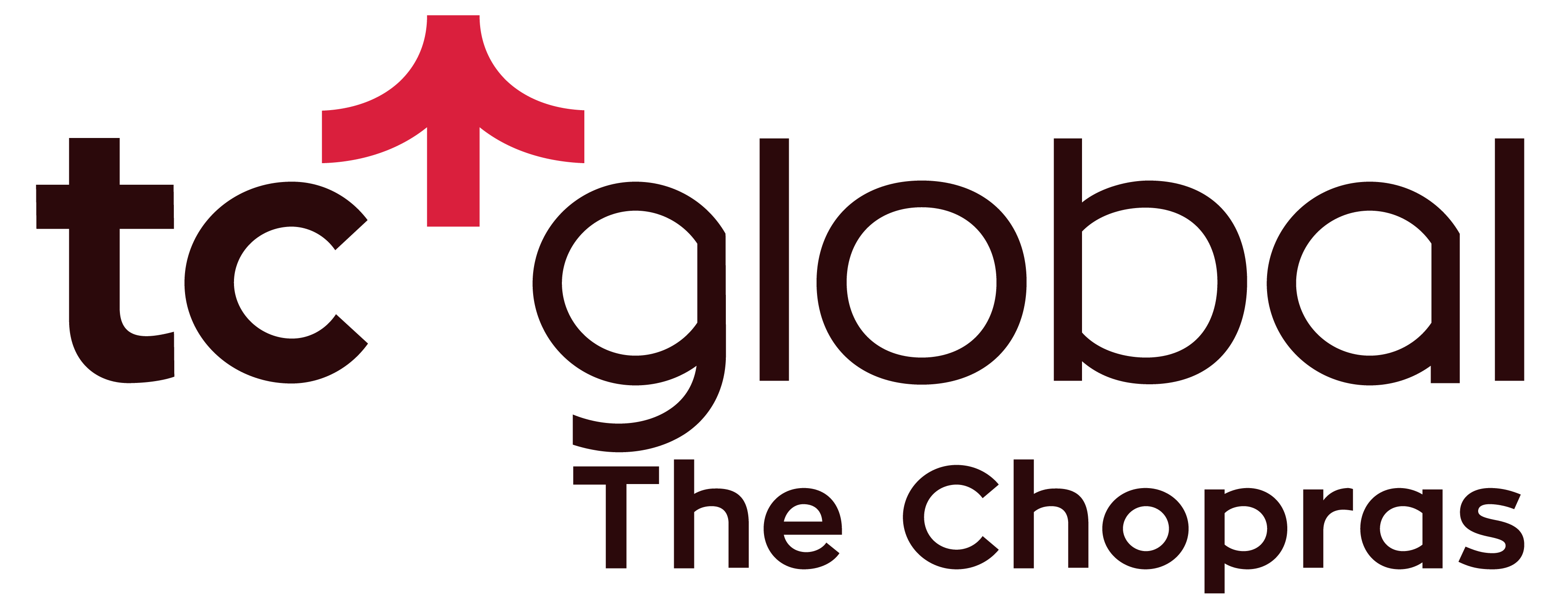When researching options for higher education in New York, NYU vs Columbia is one of the significant debates. While one is an Ivy and the other is not, the two universities are often options students look at for academic excellence and rigour.
Columbia University (nicknamed the Lions) is a private, Ivy League research university located in the city of New York. With a history that can be traced back to 1754, Columbia is one of America’s historically prestigious and highly selective universities. Ranked 23rd in the world by QS World University ranking and 12th in the country by US News and World Report, Columbia has a core curriculum emphasising a comprehensive liberal arts education. One of the world’s most important centres for research, the university is a proud host of renowned researchers and scholars, expert faculty, and a vibrant student community.
New York University (NYU, nicknamed the Violets) is also a private research university located in NYC. Founded in 1832, NYU ranks 35th in the country and 43rd in the world. With an open campus woven into the streets of urban New York, NYU is a premier research institution known for its programs in law, business, and performing arts, among other disciplines. The university is also renowned for its pioneering faculty, diverse student community, and immense alumni network, which are spread all over the globe.
Here is how the two schools stand apart. This article covers –
NYU vs Columbia: A Quick Glance

Here is a quick look at what sets these two schools apart. The finer aspects of these differences are explored in detail in the following sections.
1. Ranking and Prestige:
Columbia ranks higher—12th in the country, as opposed to NYU’s 35th. It has the added advantage of being an Ivy League school.
2. Ownership and Location:
Both are privately owned, not-for-profit institutions. While Columbia is located in Manhattan, NYU’s campuses are in Manhattan and Brooklyn (Tandon School of Engineering). NYU also has degree-granting campuses in Abu Dhabi and Shanghai.
3. Campus Size and Vibe:
NYU’s buildings are part of the city, without an enclosed space called the university campus. Columbia has a 32-acre, beautiful campus in Manhattan’s Upper West Side (Harlem). Columbia’s vibe is generally perceived as more formal and intellectual, befitting its status as an Ivy when compared to the open campus of NYU.
4. Acceptance Rate and Student Population:
NYU’s rate is over twice that of Columbia’s, averaging 8% and 4%, respectively. While their graduate student bodies are almost the same, NYU has a much larger student population than Columbia. The table below will help you compare the exact facts and figures.
5. Academics:
NYU has over three times the number of undergraduate majors compared to Columbia. The Lions also enjoy a lower student-to-faculty ratio than the Violets.
Columbia vs NYU at a Glance
| NYU | Columbia | |
| Established in | 1831 | 1754 |
| Ownership | Private Research University | Private Research University, part of the Ivy League |
| Mascot | Bobcat | Roar-ee, the Lion |
| School Colours | Purple and white | Columbia blue and white |
| Nicknames | Violets | Lions |
| Academics | ||
| US News National Rank | 35 | 12 |
| Bachelor’s Degree Majors | 270+ | 80+ |
| Number of Master’s Degrees Offered | 100+ | 80+ |
| Popular Areas of Study |
|
|
| Fees and Scholarships | ||
| Average Tuition Fee for BA/ BSc per year | $62,796 | $68,400 |
| Average Tuition Fee for MA/ MS per year | $40,000 – $114,000 | $65,340 – $90,000 |
| Average Financial Aid | $53,790 | $71,043 |
| Eligibility Criteria | ||
| Average High School GPA | 3.7 | 3.9 – 4.8 |
| Median SAT/ ACT Test Scores for admission | SAT: 1470 – 1570 ACT: 33 – 35 (Test Optional) |
SAT: 1510 – 1560 ACT: 33 – 35 (Test Optional) |
| English Language Requirements | TOEFL iBT: – 100 IELTS: 6.5 – 7.0 |
TOEFL iBT: – 105 IELTS: 7.0 – 7.5 |
| Acceptance Rate | 8 – 10% | 3.8 – 4% |
| Student Population | ||
| No. of undergraduate students in 2023 | 29,760 | 9,559 |
| No. of graduate students in 2023 | 27,575 | 21,639 |
| Average Early Career Salary of Graduates | MBA – $170,000 Undergraduates – $71,128 |
MBA – $175,000 Undergraduates – $92,245 |
| Student Faculty Ratio | 8:1 | 6:1 |
| Average Class Size | 58.4% of classes with fewer than 20 students | 60% of classes with fewer than 20 students |
| Campus | ||
| Campus Location | Manhattan, Brooklyn | Manhattan |
| Campus Type | Open campus, part of NYC | Enclosed urban campus |
NYU versus Columbia: Academics

One of the primary aspects to consider in the debate of Columbia University vs NYU is academics. Both NYU and Columbia are highly ranked top universities located in New York, America’s most influential and diverse metropolis. Both universities offer undergraduate, master’s, doctoral, and professional degrees to their students in varied disciplines. Both universities are internationally recognised. Then how do they stand apart from one another? Is NYU or Columbia better? Here’s a deeper look.
Overall and Subject Ranking
In your decision-making process, if ranking and prestige play a vital role, then it is safe to say that Columbia is a step ahead of New York University. One of the members of the prestigious Ivy League group of universities on the eastern coast of America, Columbia University ranks 34th in the world according to QS World University Rankings and 12th in the country, according to US News and World Report. Columbia University is world-renowned for its programs in law, art history, anatomy, English literature, marine sciences, engineering, and psychology. Some of the highest-ranked graduate programs are offered by Columbia’s Business School, Law School, and the College of Physicians and Surgeons. Then, is Columbia better than NYU?
The answer is both yes and no. When comparing ranks, NYU ranks 43rd globally and 35th nationally. But when looking at individual areas of study, NYU schools are just as prestigious and rank even higher than Columbia’s. NYU Stern School of Business, Tisch School of Performing Arts and Tandon School of Engineering are highly sought after, and selective.
Ultimately, both institutions foster a competitive yet collaborative environment, designed to push students towards excellence. Here is a quick comparison of the university ranks for 2024
| New York University | Columbia University |
| Overall National Rank US News: 35 | Overall National Rank US News: 12 |
| Times Higher Education WUR: 27 | Times Higher Education WUR: 17 |
| QS WUR 2025: 43 | QS WUR 2025: 34 |
| Subjects and Other Ranking (Source: QS and US News) | |
|
|
To sum up, if you compare the overall ranking and the global reputation of the two universities, they are fairly equally placed and compete neck to neck. The one key difference is that Columbia has the prestigious distinction of being an Ivy League University, while NYU does not have that tag attached. With the Ivy tag comes the assumption of academic rigour, top-notch students due to highly selective admissions, and a certain sense of elitism. In comparison, some schools of NYU, such as the Law School, Tisch School of Arts, or the Stern B-School, rank even higher than some of the Ivies. However, looking at NYU as a whole, their programs, especially the undergraduate ones, are at par with those offered in the Ivies.
Constituent Schools
The different courses at NYU are offered by the following schools and colleges.
- College of Arts & Science
- Graduate School of Arts & Science
- Liberal Studies
- College of Dentistry
- Courant Institute of Mathematical Sciences
- Gallatin School of Individualised Study
- Grossman School of Medicine
- Institute of Fine Arts
- Institute for the Study of the Ancient World
- Leonard N Stern School of Business
- Robert F. Wagner Graduate School of Public Service
- Rory Meyers College of Nursing
- School of Global Public Health
- School of Professional Studies
- School of Law
- Silver School of Social Work
- Steinhardt School of Culture, Education, and Human Development
- Tandon School of Engineering
- Tisch School of the Arts
The schools and colleges that constitute Columbia University are
Grad Schools
- Graduate School of Architecture, Planning and Preservation
- Graduate School of Arts and Sciences
- School of the Arts
- Columbia Business School
- Columbia Climate School
- Columbia Journalism School
- Columbia Law School
- College of Dental Medicine
- School of International and Public Affairs
- Jewish Theological Seminary
- School of Nursing
- Vagelos College of Physicians and Surgeons
- School of Professional Studies
- Mailman School of Public Health
- School of Social Work
- Teachers College
- Union Theological Seminary
Undergraduate Schools
- Columbia College
- Fu Foundation School of Engineering and Applied Science
- School of General Studies
- Barnard College*
Note:
1. Only four colleges of Columbia University offer undergraduate degrees while the remaining award mainly graduate, professional or doctoral degrees.
2. It is important to distinguish between Columbia College and Columbia University. Columbia College is the university’s traditional undergraduate liberal arts college. Columbia University is the larger, all-encompassing institution that awards degrees.
3. The School of General Studies has been created specifically for returning and nontraditional students seeking a rigorous, traditional, undergraduate degree full or part time.
4. * – Barnard College has a unique place in the history of American higher education. It is both an independently incorporated educational institution and an official college of Columbia University. An undergraduate, women-only liberal arts college, it is fully affiliated with and located across the street from the larger Columbia University. Students from Barnard and Columbia share course catalogues, academic resources along with extracurricular activities, athletic fields, and even dining halls.
Degrees and Class Sizes
Another important factor in choosing NYU or Columbia is the difference in size – be it in terms of student population, number of programs or class sizes.
| NYU | Columbia | |
| Undergraduate Population | 29,760 | 9,559 |
| Graduate Population | 27,575 | 21,639 |
| Number of Undergraduate Options | 270+ | 80+ |
| Number of Graduate Options | 100+ | 80+ |
| Student – Teacher Ratio | 8:1 | 6:1 |
| Classes with fewer than 20 students | 58.4% | Around 60% |
From the table, one thing stands out. NYU has a lot more options when it comes to undergraduate study. This is also reflected in the undergrad student population. When comparing the student body of Columbia, the grad student population is around 2.5 times that of the bachelor’s level. While the class sizes are relatively similar, Columbia’s student to faculty ratio is lesser than NYU’s.
Another key distinction is that Columbia has an in-depth liberal arts-based core curriculum that all undergraduate students are required to take. This includes courses in areas such as literature, arts, history, and science. In contrast, NYU has a far more flexible curriculum with fewer mandatory course requirements.
Key Dates for Application
In this section, we’ll look at the key dates for application and admission into undergraduate programs to get a sense of the timeline. It is also recommended that you verify with the specific department/school that you are applying to just to ensure they do not follow a different cycle.
| Important Dates | NYU | Columbia |
| Early Action (EA) Deadline | – | January 15 |
| Early Decision (ED) Deadline | ED I – November 1
ED II – January 1 |
March 1 |
| Regular Application Deadline | January 5 | May 15 |
| ED admission decisions Posted in | December 15 and February 15 | Mid-December |
| Regular Decision Posted in | April 1 | Late March – Early April |
| Deadline to accept offer of admission | 4 weeks from the date of the offer | May 1 |
| Average Acceptance Rate | 8% | 3.85% |
Admission Options to be considered in the Columbia NYU debate
1. NYU does not have an Early Action admission process but only an Early Decision process, while some of the Columbia schools have both.
2. Early Decision in both universities is binding. Students admitted through ED are contractually bound to enrol in the university and withdraw any other application.
3. Columbia’s EA, on the other hand, is non-binding and non-restrictive. EA deadlines are typically much ahead of the regular deadlines.
4. The Common Application is required for students applying to any or all of NYU’s three degree-granting campuses in New York, Abu Dhabi, or Shanghai. Columbia accepts either the Coalition Application on Scoir or the Common Application.
5. First year undergraduate students applying to Columbia apply to specific schools – Columbia College, Columbia Engineering or Bernard College – rather than the university in general. So it is mandatory to verify deadlines for each of these schools, depending on the programs of your choice.
6. Only women are admitted in Bernard College. It is an affiliate college and is often perceived as not a true member of Columbia. However, a degree from Bernard is signed by the presidents of both Bernard and Columbia and carries the seals of both institutions.
Semester vs Quarter
Both NYU and Columbia follow a semester system, with the main academic calendar spreading through Fall (August/ September – December) and Spring (January – April/ May). Both universities also have a shorter summer term during which some academic activities occur.
What are the top three courses to study at NYU?
1. Business
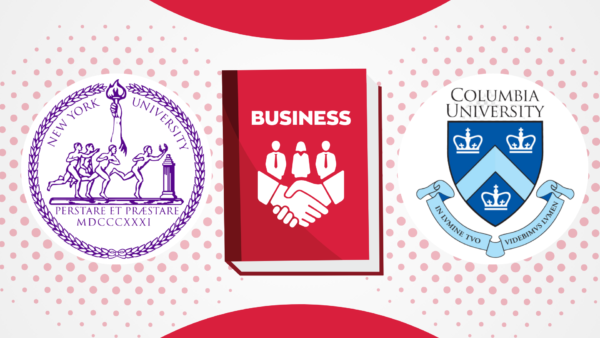
Stern Business School at New York University provides a well-rounded business education at the bachelor’s, master’s and doctoral levels. Ranked 11th in the country by QS Rankings, NYU Stern offers some of the most competitive business programs on the eastern coast of the United States. It is one of the few top-rated business schools in the US that offer numerous STEM-certified undergraduate degrees in business, including a BS in Business, BS in Business and Political Economy, BS in Business, Technology and Entrepreneurship, and concurrent degrees in Business, Film and Television.
At the graduate level, besides the MBA and its specializations, Stern offers degrees in Accounting, Data Analytics and Business Computing, Marketing and retail science, Organization Management and Strategy, Quantitative Economics, and Quantitative Finance. With stalwart faculty at the top of their fields and an emphasis on social impact, NYU has some of the best business programs in the country.
2. Law

Ranked 6th in the world, having overtaken most of the Ivies, including Columbia, the London School of Economics and UCL, the NYU School of Law offers top-notch legal programs in the country. At the cutting edge of interdisciplinary research and teaching, NYU’s strengths lie in strengths in law and philosophy, economics, politics, history, and social theory.
Their courses on international, comparative, and foreign law are renowned the world over. NYU Law also offers a number of dual degree programs, as well as other grad schools at the university. This unique opportunity enables students to complete a Juris Doctor degree and earn a Master’s degree in four years.
3. Visual and Performing Arts
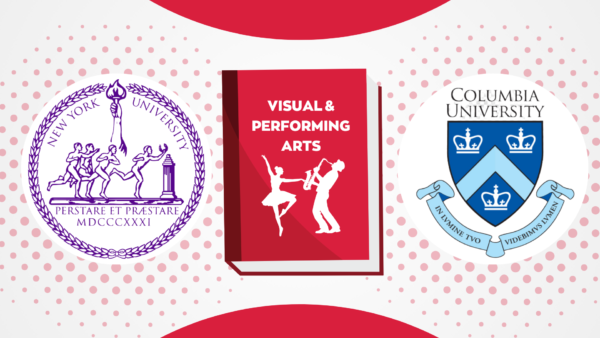
Besides being located in the middle of New York’s vibrant arts scene, the Tisch School of Arts is one of the preeminent centres for the study of the performing, cinematic and emerging media arts. This school is the alma mater of some notable artists, including Lady Gaga, Martin Scorcese, Chris Columbus, Adam Sandler, Alec Baldwin, Rainn Wilson, Alexis Bledel, Andy Samberg and M Night Shyamalan.
Tisch brings together artists and scholars from around the world to study acting, dance, cinema studies, collaborative arts, design for stage and film, dramatic writing, film and television, game design, interactive media arts, interactive telecommunications, moving archiving and preservation, musical theatre writing, performance studies, photography, public policy, and recorded music.
What are the top three courses to study at Columbia University?
1. Social Sciences
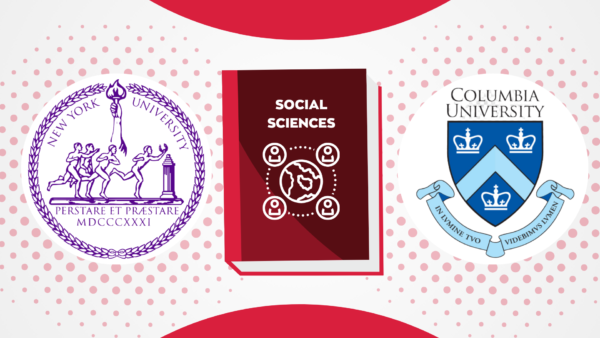
Ranked 11th in the world for Social Sciences by QS Subject Rankings, these programs at Columbia College will help you gain invaluable skill sets like research and data interpretation skills, critical thinking and analysis skills, and learning how to organise tasks and information.
Columbia’s bachelor’s degrees in social sciences include specializations in Behavioural Science, Community and Organizational Leadership, Criminal Justice, Forensic Psychology, Psychology, and Social Work. In fact, Columbia is one of the top 10 universities in the world for the study of psychology, ranked ahead of UC Berkeley, NYU, and Princeton.
2. Engineering

While not ranked as highly as MIT or Caltech, the Fu Foundation School of Engineering and Applied Science offers some of the top courses at Columbia University. Guided by the school’s vision that emphasises on “engineering for humanity”, this school provides a highly collaborative and interdisciplinary foray into the world of engineering at the undergraduate, graduate and doctoral levels. The university’s computer science and computer engineering program is top-notch, and the graduate degree in financial engineering attracts people from all over the globe.
3 Business and Management Studies

Ranked 7th in the world for its MBA programs and 20th overall for the study of Business and Management by QS Rankings, the Columbia Business School is one of the premier b-schools in the country. While focussing primarily on graduate study, the b-school does offer an undergraduate business management concentration that brings together the theories of management with the practices of the real world. Columbia b-school alums have founded 726 startups in the last decade and 95% of them are employed within 3 months of graduation.
Notable Faculty, Alumni and Research Facilities
Both NYU and Columbia have a long list of illustrious alumni that include former presidents, Nobel laureates, McArthur fellows and numerous other distinguished scholars. Moreover, some of the biggest names in Hollywood have graduated from the Tisch School of Arts of NYU. However, Columbia’s longer history and the resources available as an Ivy has enabled the University to produce over 70 Nobel Prize winners while there are 5 Violet Nobel Prize winners.
Both are R1 research universities that allocate over $1 billion for research. Columbia is generally regarded as one of the finest research institutions in the world.
| Academics – Key Similarities and Differences |
| 1. While both the universities are fairly evenly matched in most areas, Columbia has the added advantage of being an Ivy League University. This also makes the competition tougher.
2. NYU has more than double the number of undergraduate majors to choose from, when compared to Columbia. 3. Both universities follow an academic calendar that is divided into semesters. 4. Columbia has a lower student to faculty ratio when compared to NYU. 5. Both schools offer numerous study abroad options that allow students to attend a semester or a year abroad. While Columbia typically ties up with partner universities and organisations, NYU has global academic centres located in 12 cities around the world, in addition to partner institutions. 6. Both schools offer compulsory core curriculum for students of all majors to build an intellectual foundation and develop well-rounded skill sets. Columbia has an in-depth liberal arts based core curriculum while NYU’s is slightly more flexible with fewer requirements. |
NYU vs Columbia: Fees and Scholarship Opportunities

After academics, the next important distinction that will help you decide when it comes to the NYU Columbia debate is the cost involved. The cost of attendance (tuition), additional expenses such as books, student fees, insurance and housing must be taken into account before making a choice.
Since both New York University and Columbia University are privately owned, they do not offer subsidised tuition rates for in-state students like the other American public universities. Here is a table that will help you compare these two top universities in the matters of fees and scholarships.
| Annual Rates | NYU | Columbia |
| Tuition (Bachelor’s) | $62,796 | $68,400 |
| Average Tuition (Master’s) | $40,860 – $96,705 | $66,139 |
| MBA Tuition | $86,092 – $113,365 | $84,496 |
| Housing | $10,240 – $26,720 | $11,000 – $12,222 |
| Types of Financial Aid | 1. Scholarships and Grants 2. Federal Loans 3. Work Study Grants 4. External Scholarships |
1. Columbia Grants 2. Federal Grants 3. State Grants 4. External Scholarships 5. Student Employment 6. LoansAll are need-based. Columbia University does not offer merit scholarships. |
| International student scholarships |
|
|
| Average financial aid for first year students | $59,000+ | $70,797 |
| Admission Decisions | Need aware for international students | Need aware for international students |
| Demonstrated Need Cover | 100% (Families with income less than $100,000 will not have to pay tuition) | 100% (Families with income less than $150,000 will not have to pay tuition) |
Note:
1. The tuition fees are average figures, calculated for a typical academic year of 9 months. The fee will be higher should you choose to take extra courses in the summer months.
2. The tuition fee amounts in the table are indicative of only the cost of attendance. It does not include books, student health insurance and other expenses. Student insurance alone can cost between $3,000 – $7,000 a year.
3. While NYU has a few merit scholarship options, all scholarships that come out of Columbia University are need-based. What it means is that all aid funded directly by the University of Columbia is awarded only on a need basis. However, you can look into external scholarship options if you are looking for merit scholarship options.
NYU vs Columbia: Student Life and Post-Graduation Opportunities

Here are a few other factors that will help you decide “Is NYU or Columbia better?”. Typically, this section would begin with comparing locations, but since both universities are concentrated in and around Manhattan, there is no comparison there. In fact, the distance from Columbia to NYU is less than 8 miles. Both universities give you the advantage of living in one of the greatest cities in the world. New York City is a global centre for finance and commerce, academics, art, and entertainment. The city is also culturally diverse, drawing people in from all parts of the world.
So, we will be looking into other aspects, such as their respective campuses, student bodies, housing options, sports, extracurriculars and post-graduation opportunities.
1. Campus
NYU:
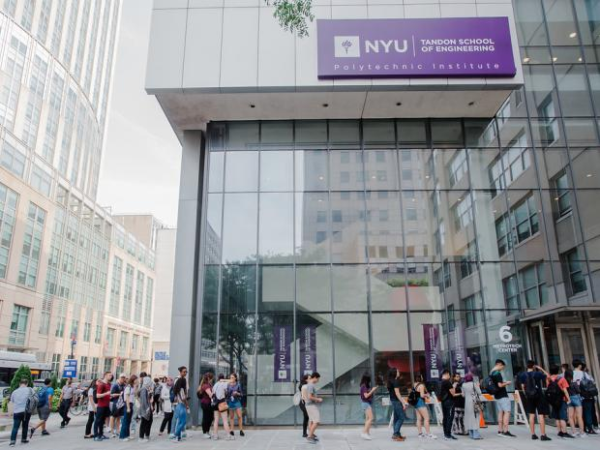
Source: NYU
The largest private university in the USA, the New York City campus of NYU houses 11 schools and colleges that offer hundreds of bachelor’s and graduate degree options to its students. While most schools are located in the main campus located in Greenwich Village, the Tandon School of Engineering is located in downtown Brooklyn.
NYU’s campuses are scattered amidst the city, primarily concentrated around Washington Square Park. The university does not have a separate enclosed campus but rather weaves through the buzzing tapestry of NYC. The 170+ buildings of the university spread between Manhattan and Brooklyn also includes, in addition to the academic, research, and residential premises, the Centre for Student Life, Office of Global Services, NYU Box Office, and the Wasserman Centre for Career Development.
Besides New York, the university also has degree granting campuses in Abu Dhabi and Shanghai.
Columbia:

Source: Columbia University
Unlike the NYU campus, Columbia University has a dedicated enclosed campus on the island of Manhattan. The main campus located in Morningside Heights spans 32 acres and houses most of the academic premises. The university also owns a number of residential complexes in the vicinity to house faculty, graduate students and staff. Several buildings on campus are included in the National Register of Historic Places. The Low Memorial Library and the Union Theological Seminary are known for their architectural significance.
With a beautiful, walkable campus, Columbia University provides a world class education while being tucked away in a quiet residential corner of one of the greatest cities in the world.
2. Student Population
NYU: The student enrollment at NYU as of Fall 2023 was around 61,950, out of which 29,760 were admitted in bachelor degree programs, 27,575 in graduate and professional degree courses and around 4,615 in noncredit programs. Like the city, the student population is also highly diverse, with a majority of international students, creating a multicultural learning atmosphere. Here is a break up of the student population, based on 2023 enrollment.
- International: 24%
- White: 22%
- Asian/Pacific Islander: 19%
- Hispanic/Latino: 17%
- African American: 8%
- Other: 10%
Columbia: When compared to NYU, Columbia has a much smaller undergraduate student body of 9,559 students enrolled in both full-time and part-time programs. At the graduate and professional level, there were 21,639 students enrolled in Columbia, as of Fall 2023. A total of 51% of the university’s student population is composed of ethnic and racial minorities and around 39% is made up of international students. The university maintains a student to faculty ratio of 6:1.
3. Housing
NYU: Living on campus is optional for NYU-NYC students. The university has 20 residence halls located in Greenwich Village and Brooklyn. Around 11,500 (around 20%) undergraduate and graduate students live on campus. Over 97% of the rooms available in NYC dorms are shared spaces. The chances of getting private accommodation are very low. First year students at the Tandon School of Engineering will be assigned residence halls in Brooklyn only. On-campus housing costs anywhere between $11,000 and $27,000, depending on the nature of the room. The university also hosts an off-campus housing website for students researching options outside of the university.
Columbia: Columbia Residential manages 150 apartment buildings with most of them concentrated in the neighbourhoods of Morningside Heights, Manhattan Valley and Manhattanville, making it walking distance from the academic blocks. The typical student housing is either a dorm or a shared apartment. However, the university does have a limited number of studios, one-bedroom, and two-bedroom apartments allocated for students with dependent children.
Students enrolled in the Law School, the Graduate School of Arts and Sciences, and the School of General Studies are usually accommodated in dedicated residence halls meant for these schools. Students enrolled in executive programs are not eligible for housing. Unlike NYU, undergraduate housing is guaranteed for all four years at Columbia and nearly 90% of students live on campus for all four years of study.
4. Sports and Extracurriculars
NYU: Every year, around 450 NYU student athletes compete on 23 NCAA Division III varsity sports teams. In addition, around 850 Violets face rival schools, as members of the 24 intercollegiate club teams. Intramural athletics range from soccer, basketball, and badminton to e-gaming, box cricket, and bowling. In addition, NYU also houses the Palladium Athletic Facility, 404 Fitness, and the Brooklyn Athletic Facility that offer classes for both recreation and fitness.
In addition to athletics, the university houses over 300 active student clubs and organizations that cater to a wide range of interests, from cheese to superheroes. These clubs function in addition to the school-based clubs that are specific to NYU schools or academic programs. All NYU students can access the entire list of clubs and organizations through NYU Engage. The university also has a vibrant culture of Greek life (fraternities and sororities) that encourages leadership and cultivates friendships.
The university also hosts a number of student-led media, ranging from traditional magazines, a radio streaming and broadcast called the WNYU and an independent student newspaper called the Washington Square News. Furthermore, NYU Steinhardt sponsors orchestras, choirs, and music ensembles, some of which are open to all students of NYU.
Columbia: Home to a longstanding tradition of achievements in athletics, the Lions have 31 NCAA Division I varsity teams and over 40 intramurals and club sports. The Lions have also celebrated over 120 Ivy League championships.
In addition to athletics, the university enables over 500 student clubs, organisations and teams, over 40 social justice and service initiatives and over 70 opportunities for arts and performances. Besides academics, Columbia is the place where you can explore anything you love.
5. Internships
In both schools, the career cell is the ideal place to begin your research for internships in any location. With internships, you can gain more credits, boost your resume and experience the real-world demands of your profession. While listings are available throughout the year, you are expected to plan your internships around your coursework.
While NYU allows students to gain credit for actively monitored internships, Columbia College, The Fu Foundation School of Engineering and Applied Science, and the Columbia School of General Studies typically do not provide credit for internships.
6. Employability
NYU: One of the top 10 universities for graduate employability, 95% of NYU graduates are either employed or are pursuing higher education within 6 months of graduation. About 51% receive two or more job offers. The average starting salary for NYU graduates is $75,336.
Columbia: With a graduate employability rate of over 93%, most Columbia graduates receive job offers within 4 months of graduation. The reputation of Columbia University opens up numerous opportunities for graduates across disciplines. The academic pedigree of the institution typically allows its graduates to be recruited at much higher salaries than most other universities.
Summary
Deciding on NYU vs. Columbia is not a simple task. Both are highly reputed schools, highly selective and have their signature academic programs. That said, here is a summary of the differences.
Columbia is better suited if
- You are looking for a university that is highly ranked, a member of the prestigious Ivy League, and a world leader in almost all disciplines.
- You can keep up with the academic rigour and then reap the benefits of the Columbia name in your career.
- You would enjoy studying in an enclosed campus that provides a more traditional university experience and creates a bubble amidst the bustle of Manhattan.
- You prefer smaller classes with more professors available per student.
- You want to avail their numerous need-based financial aid options.
- You prefer staying in dorms/ in-campus housing (You have the option of staying outside but the smaller student body allows for more students to stay on campus for the entire duration of study.)
NYU is what you must look into if
- You do not focus on its slightly lower rank but pay more attention to the specific course and the curriculum that you are looking for
- You want to join the illustrious alumni of the Tisch School of Arts or the Stern School of Business
- You would enjoy living in the heart of NYC, in a bustling campus that is part of the cityscape.
- You prefer staying off-campus since housing at NYU can be competitive
- You want to avail the merit and need-based scholarships that NYU offers
- You want to be part of a top university without pressure to excel at an Ivy
While these can be factored into your decision, the ultimate call rests on whether the course curriculum and the learning outcomes meet your career plans. The most significant part of your research is to compare courses, syllabi, electives, faculty and research facilities of your preferred degree program, speak to current students, and then decide depending on which school better suits your needs.
We understand that becoming an international student can be very thrilling, but the prep and paperwork of it all can get overwhelming. The easiest way to reduce your stress is to sign up with TC Global.
We simplify international education, learning, and mobility through connecting students, universities, and a global community on a single platform where there are over 1000+ education providers and over 80,000+ courses.
Our platform enables students to study anywhere in the world in just a few steps. From search and discovery and finding the right course fit for you, to applications, visas and departure – we see you through it all.
To move forward with us, download our app or visit tcglobal.com and sign in to create an account on our student platform and onboard with us in quick, easy steps.! ?
Then simply set up a visit Calendly.com/tcglobal to pick a Relationships Team closest to you and choose a slot to meet with a Relationship Member. Be it NYU vs Columbia or any other university, our experts will be with you every step of the way to help you decide.
Let’s shape your future together.
You May Also Like

Compare more universities in USA
-
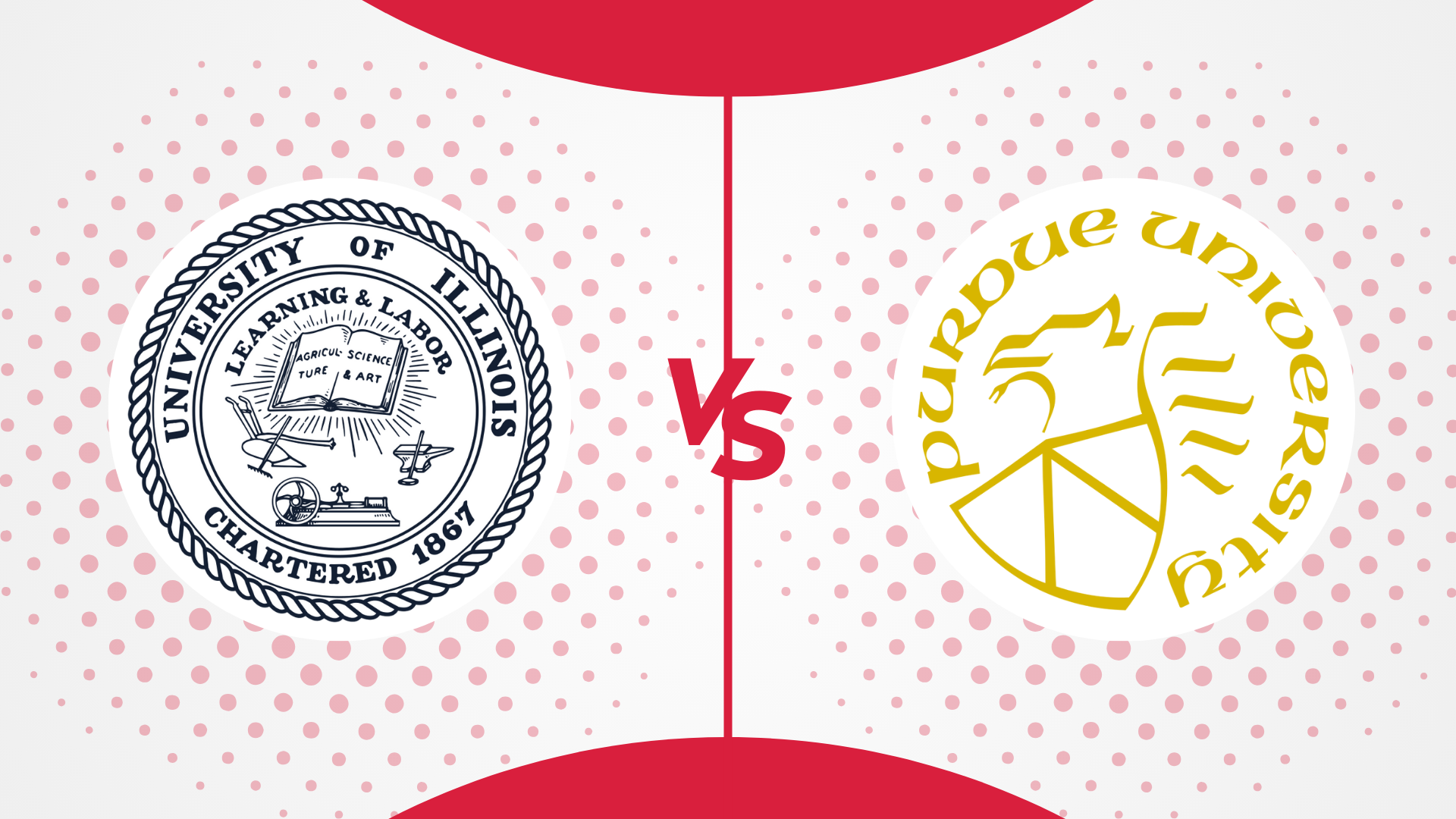
Purdue vs UIUC: How Do They Compare in 2025?
December 16, 2024 -
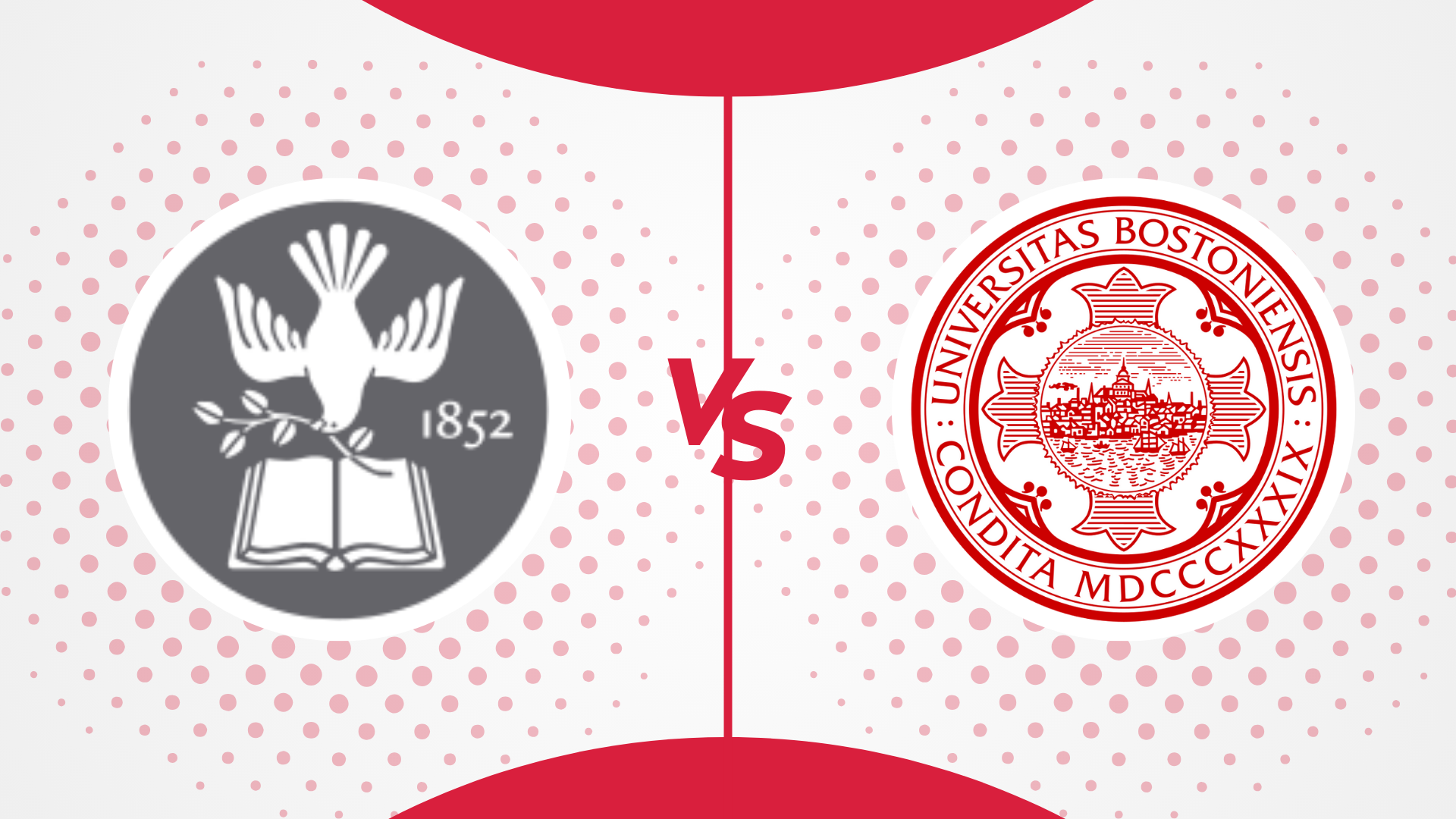
Tufts vs BU: How Do They Compare in 2025?
December 16, 2024 -

UIUC vs Georgia Tech: How Do They Compare in 2025?
December 3, 2024 -

Georgia Tech vs UT Austin: How Do They Compare? [2025]
September 24, 2024 -

UC Davis vs UC Irvine: How Do They Compare in 2024
September 10, 2024 -
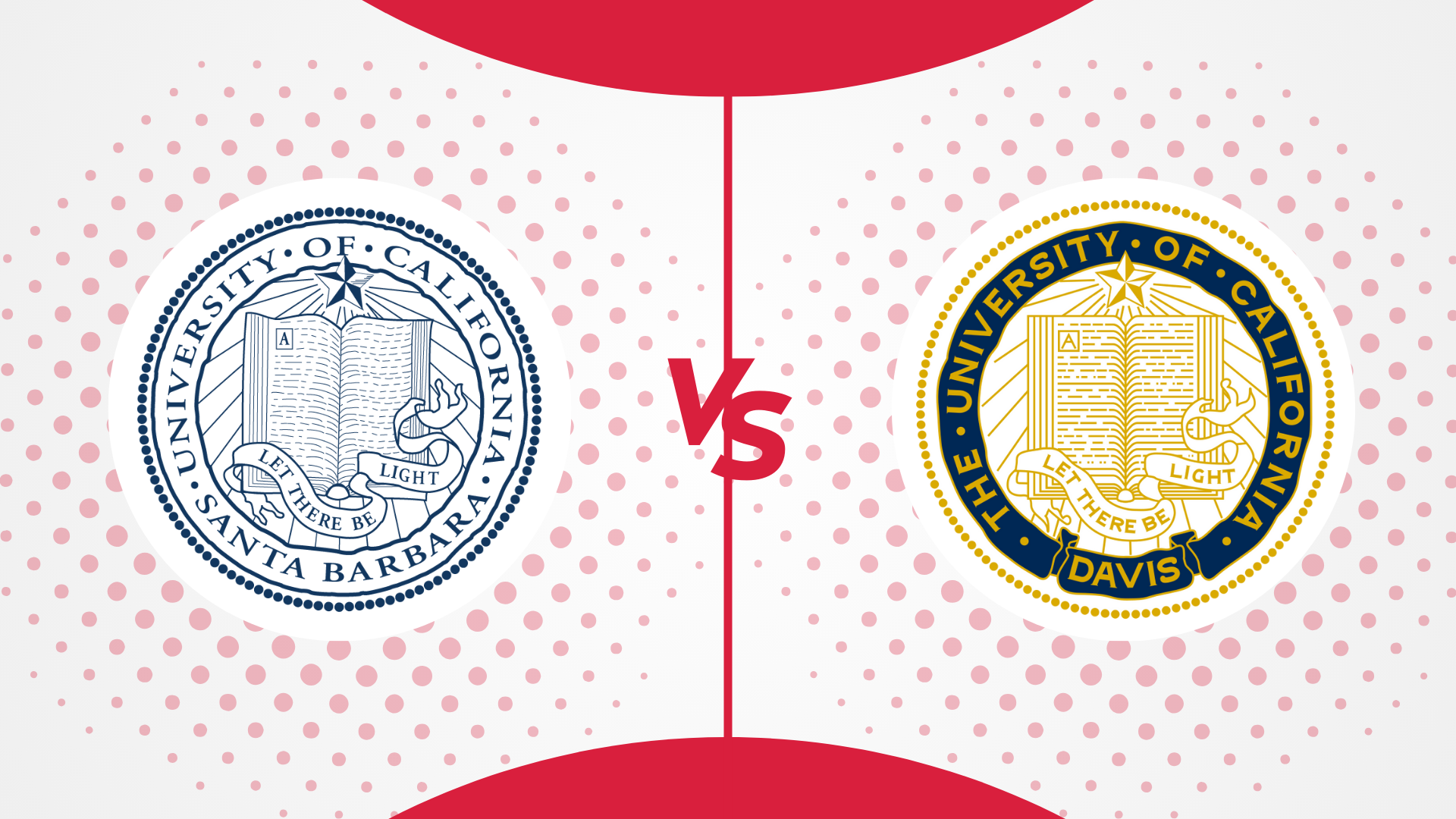
UC Santa Barbara vs UC Davis: How Do They Compare? [2024]
August 30, 2024 -
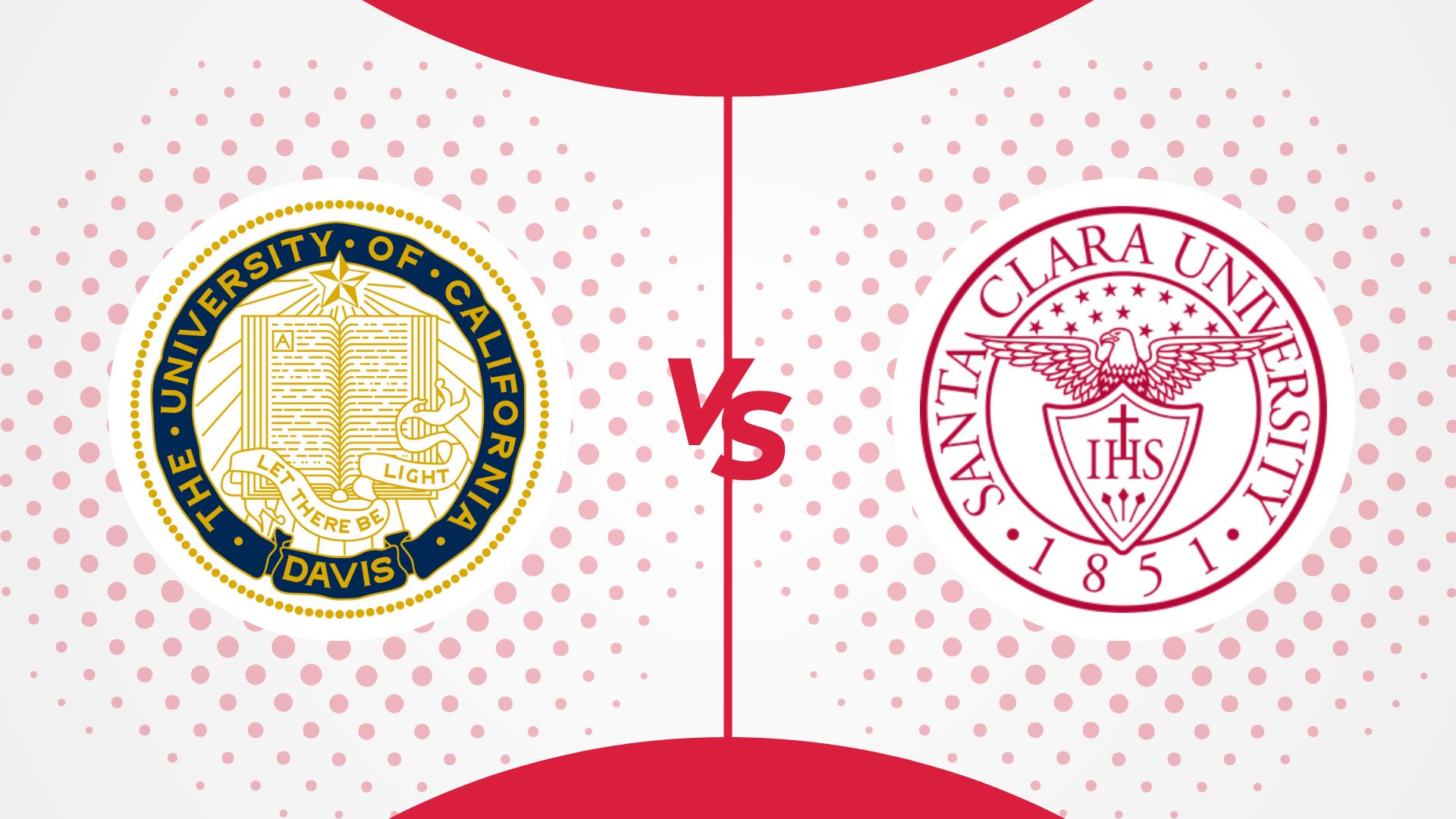
UC Davis vs Santa Clara University: How Do They Compare? [2024]
August 23, 2024 -

University of Chicago vs Northwestern University: How Do They Compare
August 20, 2024 -

Georgia Tech vs MIT: How Do They Compare? [2024]
August 7, 2024 -

Caltech vs MIT: How Do They Compare [2024]
August 2, 2024 -

MIT vs Harvard: How Do They Compare [2024]
July 27, 2024 -

Cornell vs Harvard: How Do They Compare? [2024]
July 27, 2024 -

Yale vs Harvard: How Do They Compare [2024]
July 22, 2024 -

Harvard vs Princeton: How Do They Compare [2024]
July 16, 2024 -
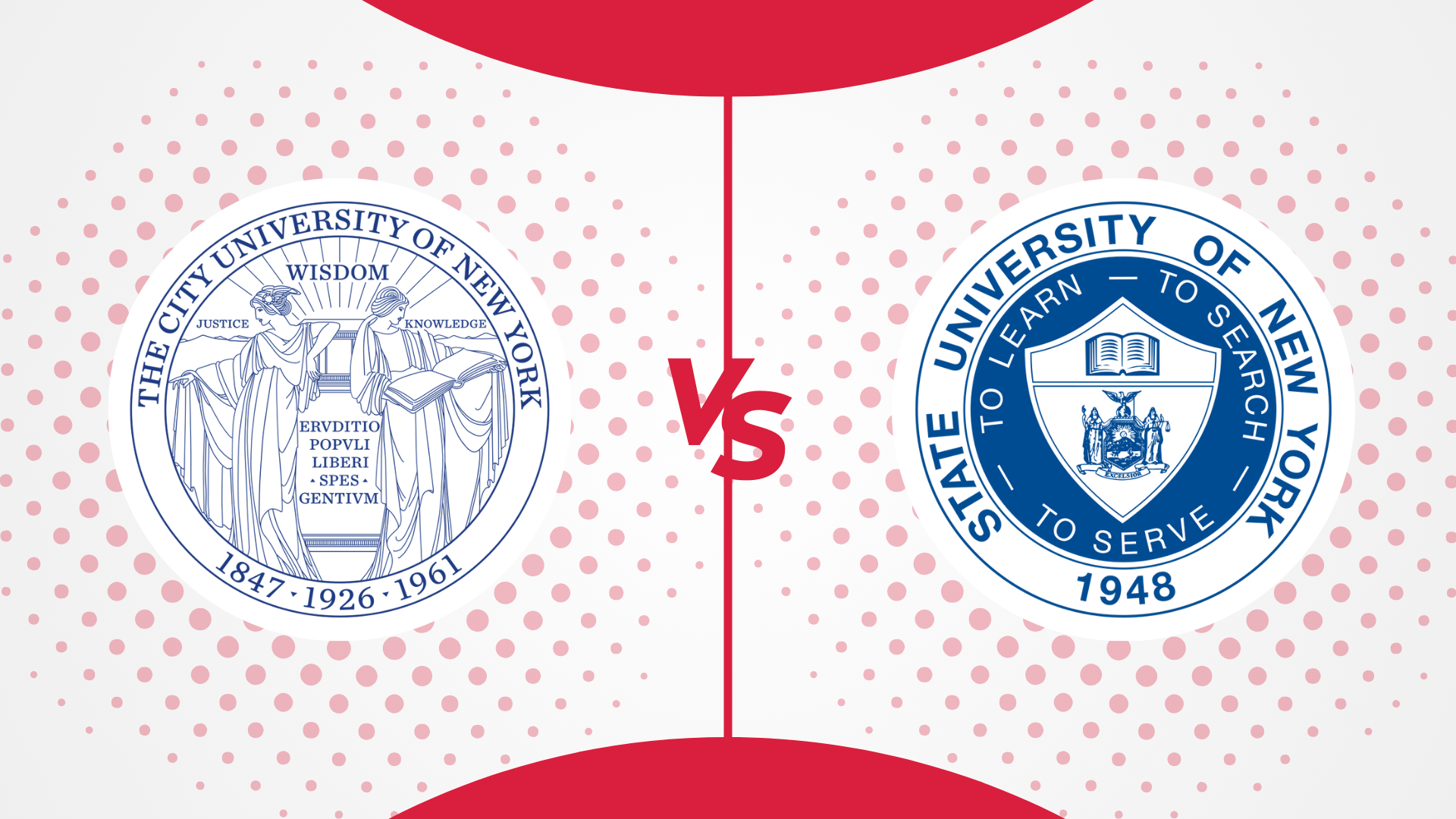
CUNY vs SUNY: Which One is For You in 2024
July 9, 2024 -
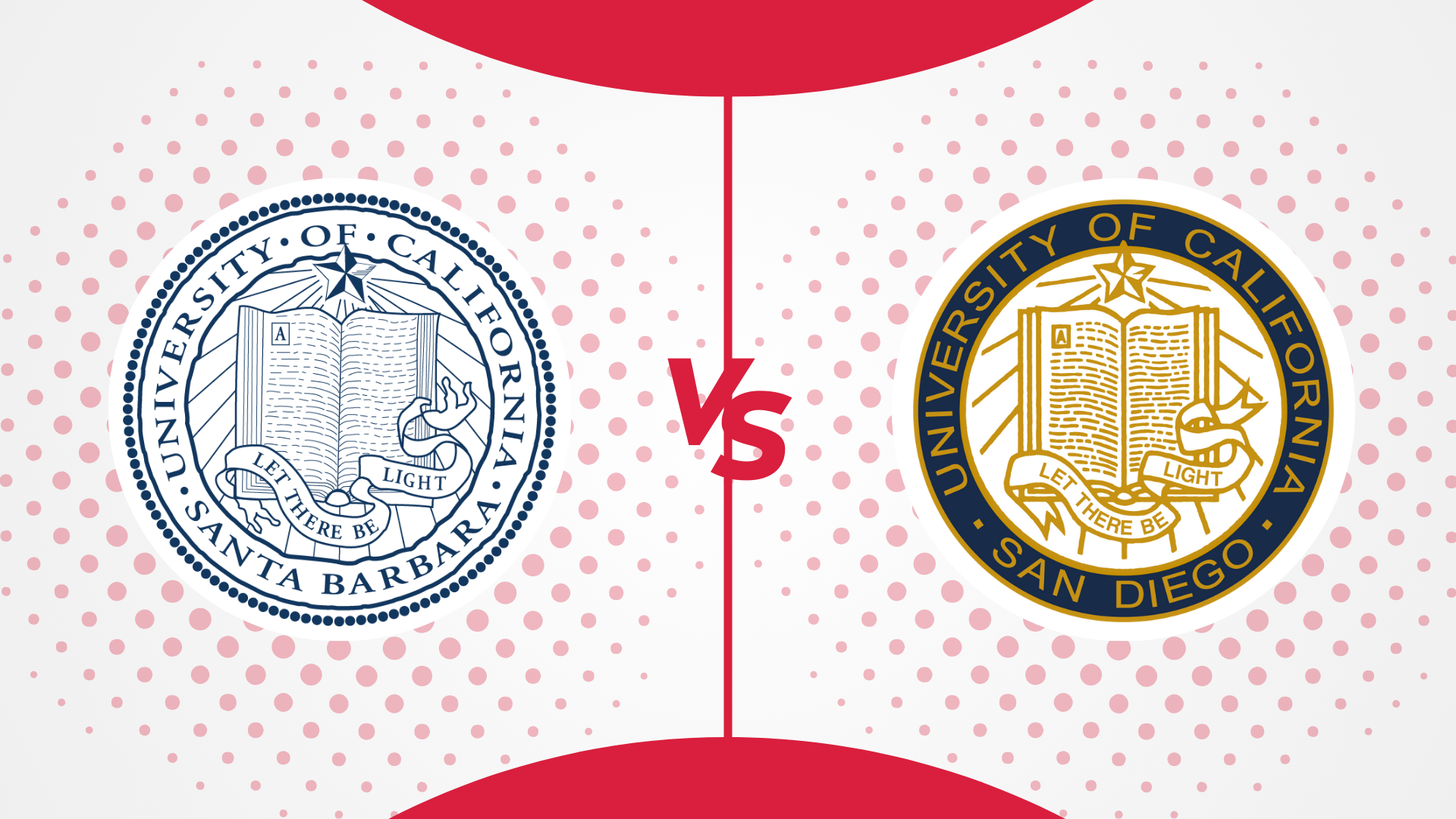
UCSD VS UCSB: Which One is Better For You in 2024
July 9, 2024 -
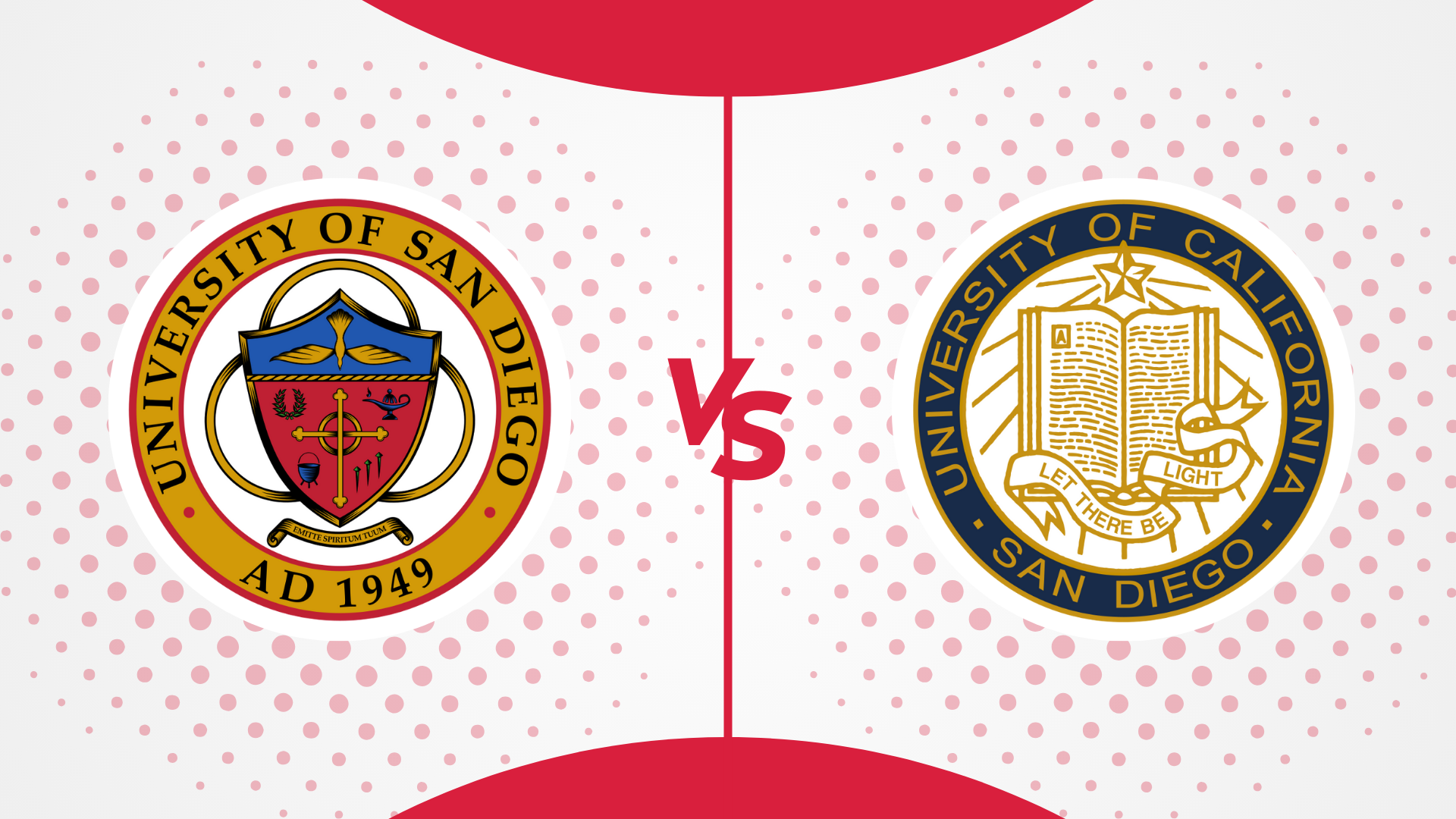
USD vs UCSD: Which one should you choose in 2024?
July 9, 2024 -
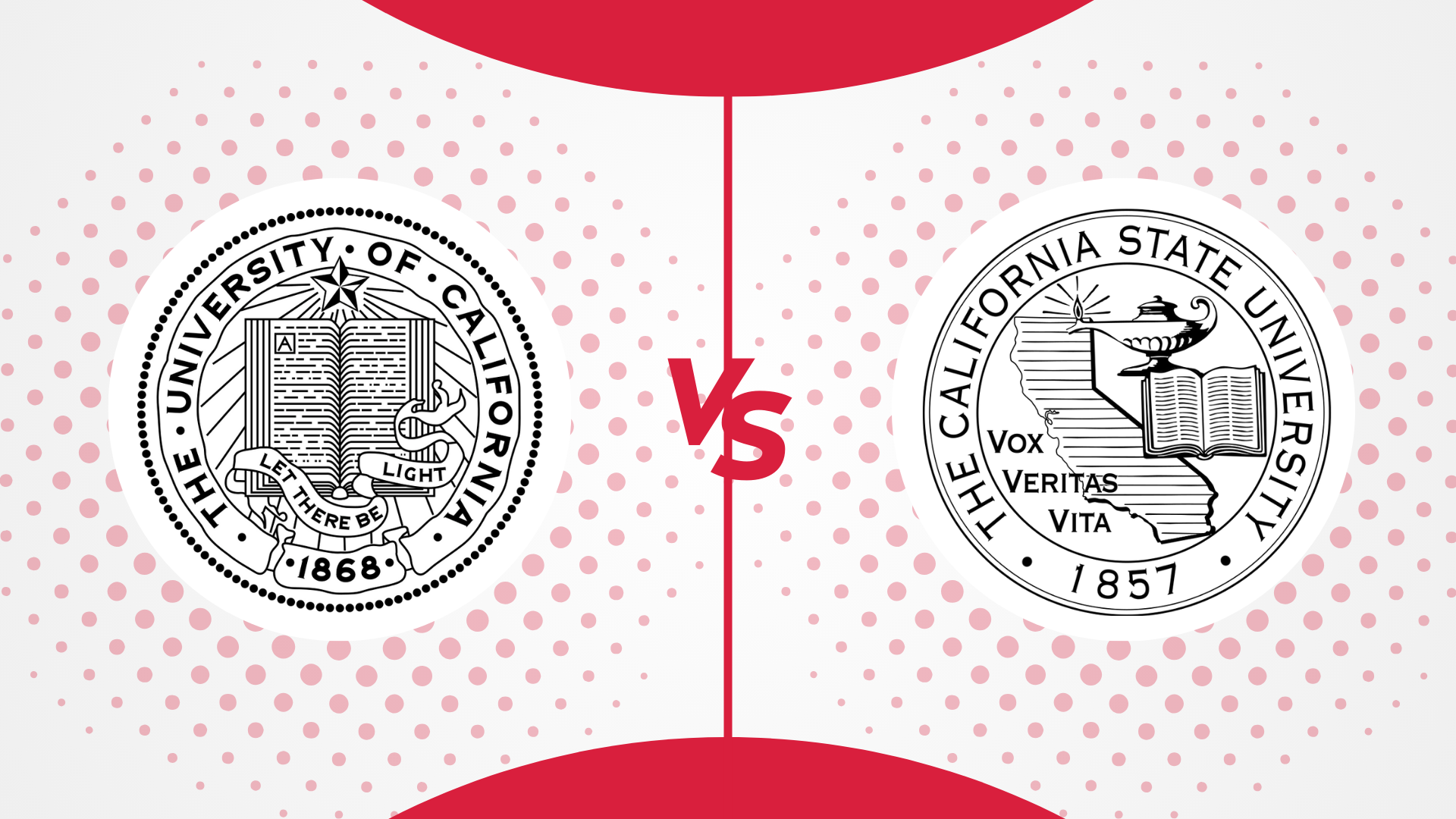
UC vs CSU: Which One is Better in 2024?
July 9, 2024 -
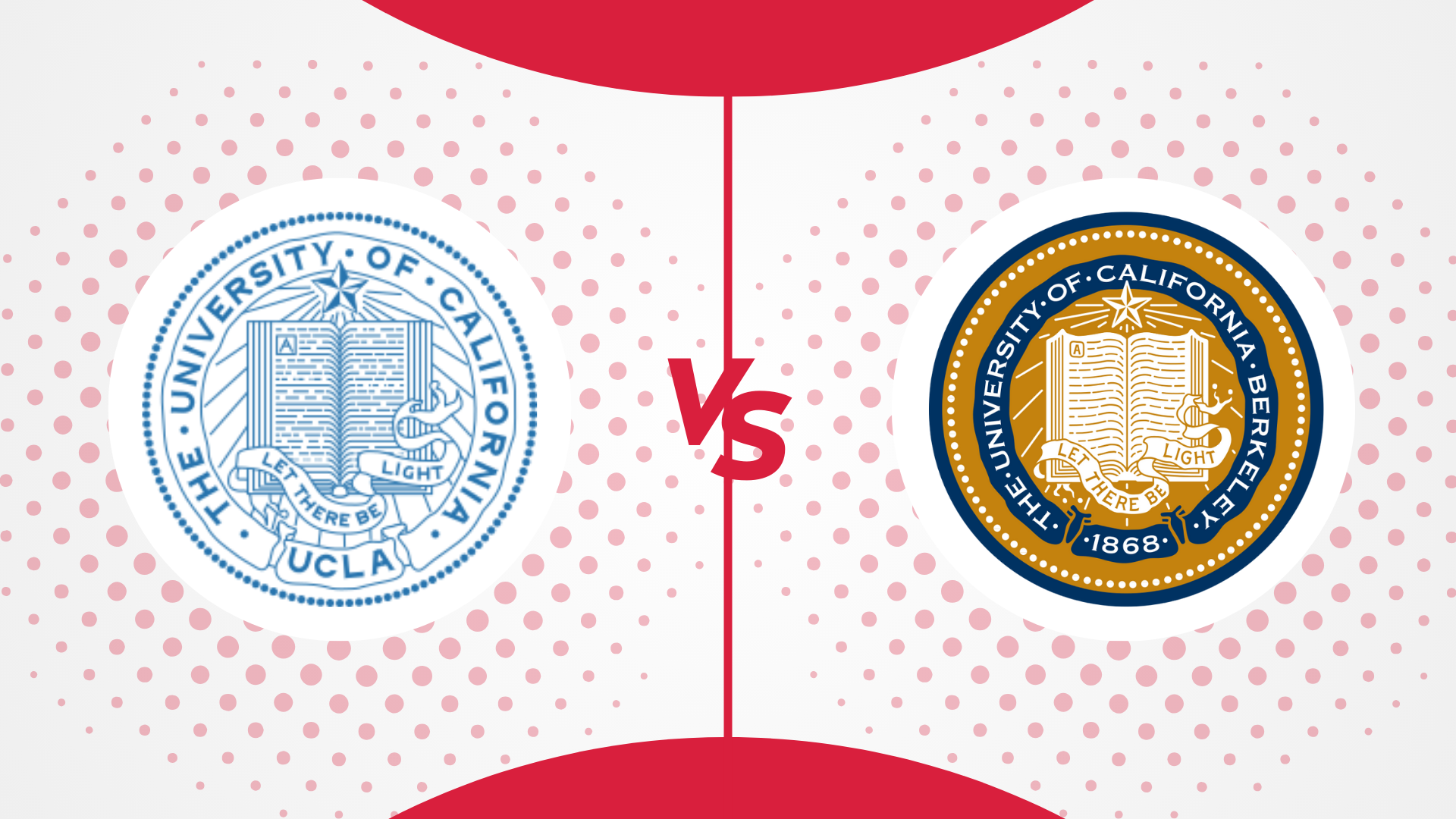
UCLA vs UC Berkeley: Which One is Best in 2024
July 9, 2024 -

University of Arizona vs Arizona State University: Which One is Better in 2024
July 9, 2024 -

Penn State vs UPenn: Which is Better for International Students in 2024
July 9, 2024 -

Northeastern vs Northwestern: Which One is Best in 2024
July 9, 2024 -

Northeastern University vs Purdue University – Which One is Better in 2024?
July 9, 2024 -

Boston College vs Boston University: Which One is the Best in 2024?
July 9, 2024 -

LSU vs UCLA: Which Is Better For You In 2024?
July 8, 2024 -

NYU vs Boston University: Which One Is Better For You In 2024
July 8, 2024 -

USC vs UCLA: Which One Is Better For You In 2024?
July 5, 2024 -
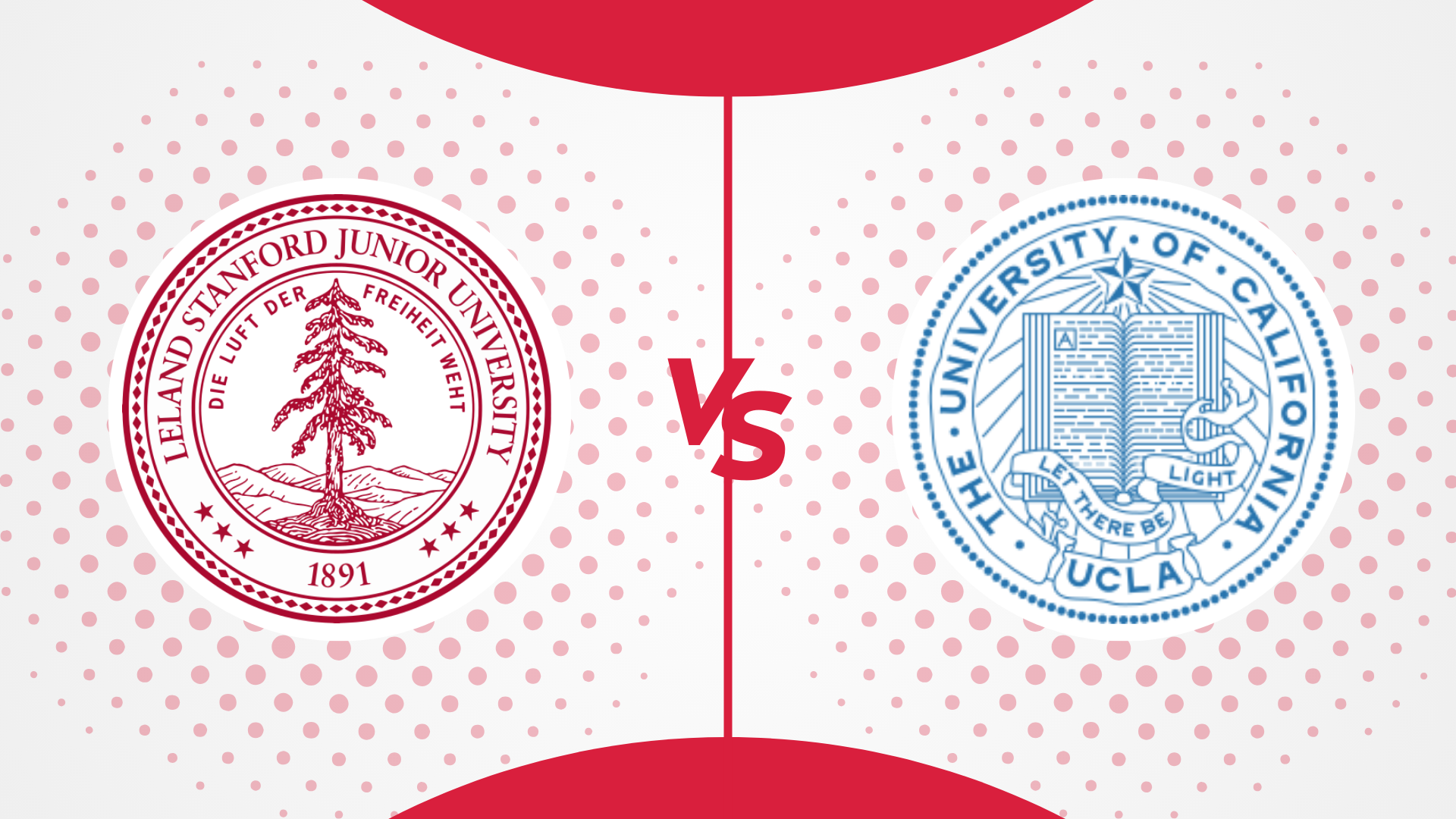
Stanford vs UCLA: Which One is Better For You in 2024
June 28, 2024 -
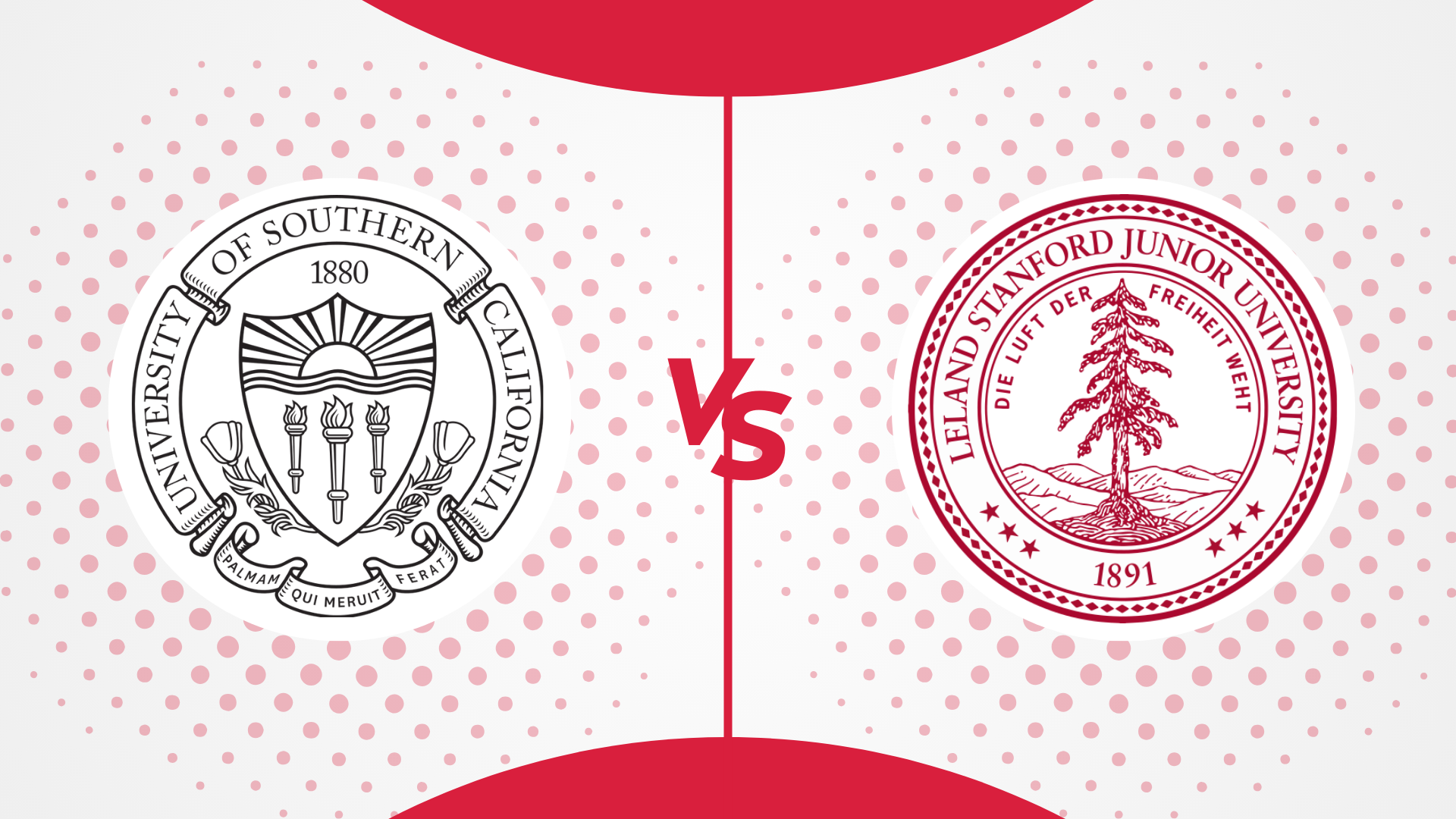
USC vs Stanford: Which One is Better For You in 2024
June 28, 2024 -
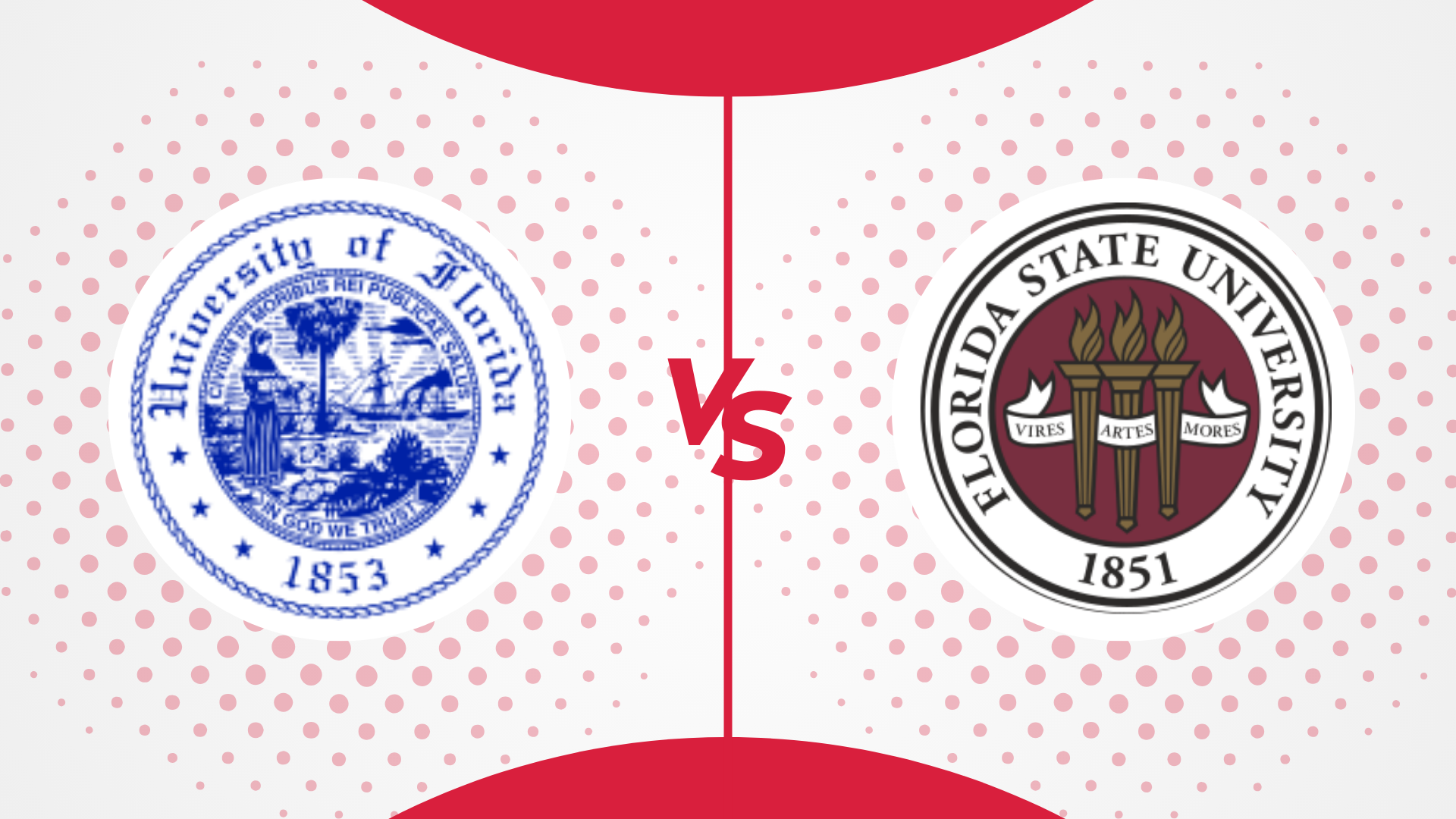
University of Florida vs Florida State University: Which One is Better For You in 2024
June 28, 2024 -

Princeton vs Columbia: Which Is Better In 2024?
June 28, 2024 -

NYU vs Cornell: Which One Is Better In 2024?
June 28, 2024 -

Boston University vs Northeastern: Which one is best in 2024
June 28, 2024 -

NYU vs UCLA: Which Is Better For You In 2024?
June 28, 2024
